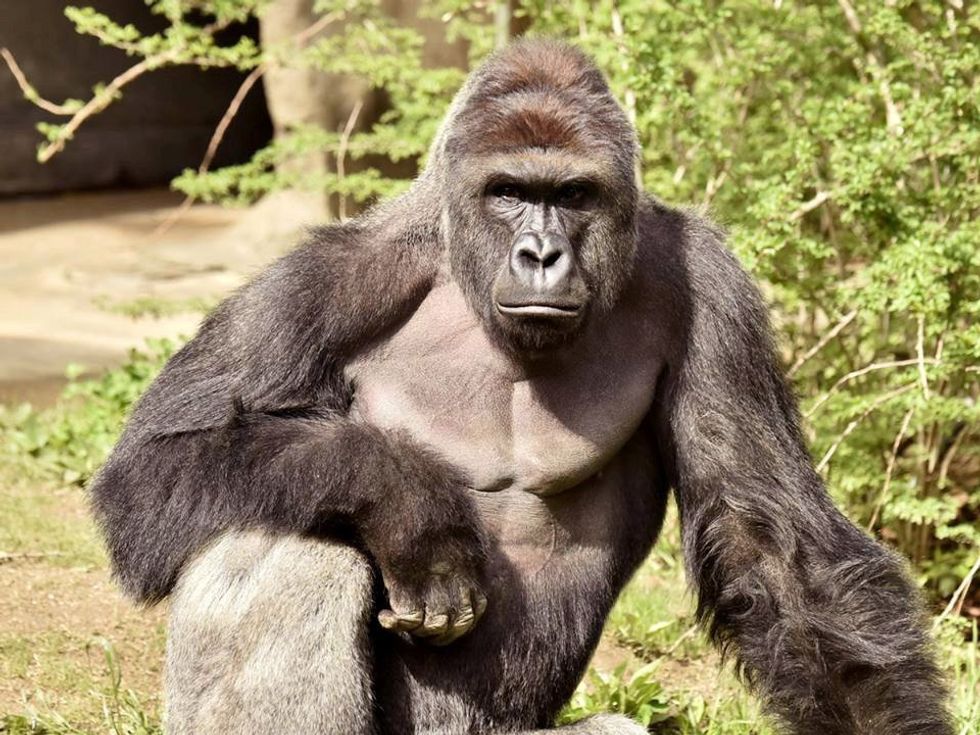Recently PETA (People for the Ethical Treatment of Animals) released a video to their webpage, and social media has been eating it up. The video, which I have posted below, talks briefly about the incident with Harambe and then advocates against zoos and animals in captivity. I'm an animal activist. As a young child, I loved zoos, but I began to grow a disdain for them as I grew. This summer I had the privilege of working at The Philadelphia Zoo and learning all the inner workings of the education department as well as the care of the animals. After this, my whole perspective on zoos changed.
Now, I would like to start off by saying that PETA does great work. They have exposed dog fights, circus abuse, the horrors of animal testing, and the cruelty of the factory farm industry. Their undercover tapes and protests have exposed problems that need to be addressed and created significant change in the world. But this video sends the wrong message about zoos, and it needs to be corrected. This video advocated against animals in captivity, not just zoos specifically, but by using Harambe they brought the zoo community into the mix.
This first issue I have with this video is using Harambe as a guilt trip. What happened to that beautiful animal was tragic and the whole zoo community was affected. They seemed to assert, at least to me, that the zoo shut down its twitter because they were ashamed of what happened and were embarrassed. But The Cincinnati Zoo shut down its twitter because they were being relentlessly harassed since the incident occurred three months ago. People are relentlessly tweeting at the zoo’s account, saying how horrible zoos are for abusing animals in cages, and saying that what happened to Harambe was an act of cruelty and animal abuse. Neither The Cincinnati Zoo nor Harambe’s keepers need to be tormented like this. The result of that tragic day was something everyone on that staff wishes could have been avoided, but under those circumstances, they truthfully had no other option. They did not simply lose a gorilla, they lost a member of their family.
Next, PETA makes atrocious comparisons in this video. First, they compare zoos to Ringling Bros and SeaWorld. Ringling Bros is a circus and holds much lower standards in terms of animal care as opposed to zoos, who receive an AZA (American Zoo Association) accreditation when they are up to par with what is considered acceptable animal care. The circus does not need this accreditation and thus, are able to abuse their animals behind closed doors. The issue with SeaWorld is that they are housing animals in enclosures much too small, and this causes severe mental and physical distress on the animals they have. The Philadelphia Zoo, I have seen how they work tirelessly to ensure our enclosures are not only up to code, but are the best case scenario for our animals. The keepers put in hour after hour to show their animals the highest standard of care, and the zoo constantly finds new ways to mentally and physically stimulate our animals.
My other issue with the video is the images PETA chose to use. They chose a tiger with its head down and a bear in a concrete corner. The tiger just happened to have its head down—we do not know its living circumstances. The bear was clearly either at a non-AZA-accredited zoo or not even at a zoo at all. Granted, some zoos do not provide the best of care. But those zoos are constantly being shut down or corrected to improve the lives of their animals.
The fact is that zoos do serve their place in this world. At The Philly Zoo I interacted with guests daily and heard some amazing stories. One of the things that always stuck out to me, however, was the strong connections people made with our animals once they saw them in person, connections they could not have formed through a TV screen. At The Philly Zoo we do not take animals out of the wild unless they are rescue animals, which is only two species we have. Otherwise, every one of them has been born in captivity and receives the highest level of care.
Some zoos give the zoo community a bad name. Just because some are bad, does not mean we can make an assumption about all zoos. They serve the purpose of connecting people with wild animals they may never get to see in their natural habitat. This allows us to protect these species for generations to come. People can be very easily brainwashed by such propaganda videos. Make sure you know all the facts.





















